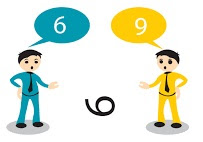Impulsive reaction and decision making

The impulsive decision means taking quick decisions without much thought about the consequences, implications to others, and self. Spontaneous reaction means quickly reacting to someone during the conversation without thinking about the consequence. It is simply all about "not thinking before speaking"
For example,
When a manager/colleague/ customer is asking for timeline commitment, without any thought or calculation, committing some timeline and realizing later that impossible to complete.
When somebody asks for your appointment tomorrow, you are agreeing for that, then later on realizing that you have some other commitments.
You can relate your experiences where you committed something without any thought and later troubled yourself to fulfill the commitment or asked for excuses.
Why do we make impulsive decisions?
It is due to our inability to control our emotions, both positive and negative emotions in a particular moment or conversation. It is a state of mind, and it is challenging to be in a balanced state, but that is what most of the effective people use to display both in extremely happy or in extremely uncertain times. That we need to learn while growing up in the ladder.
Why should leaders not make impulsive decisions?
Taking an impulsive decision is not good for everyone, but especially it costs more for the people who are growing up and at higher positions. When you are young and make any impulsive decision, it would be seen as aggressive, over-enthusiastic, ambitious, and the mistakes are perceived from the perspective.
When at a higher level, when we react without much thinking and impulsive in making decisions in a business environment, it will affect most of the stakeholders.
I know one of my managers who had grown very fast in the early years of the career due to his impulsive way of making things happen. The same strength affected his reputation and growth when he was handling the managerial roles to manage both business and people.
We should not conclude that impulsive decision means taking decision slowly. It only means making decisions without thinking about the consequences.
But in reality, most of us are prone to impulsive reaction and decision making, and we need to strive to be conscious about it.
Let us discuss some of the strategies to channelize the impulsive reaction or decision making next week!








